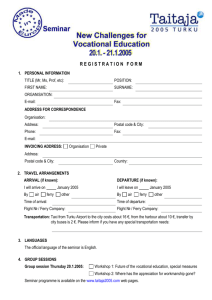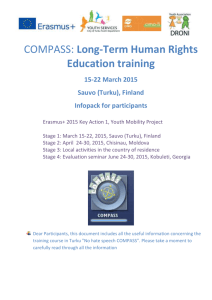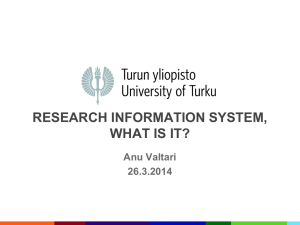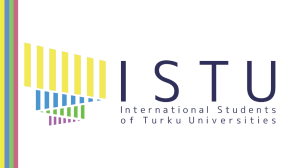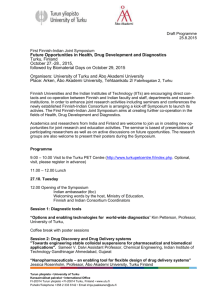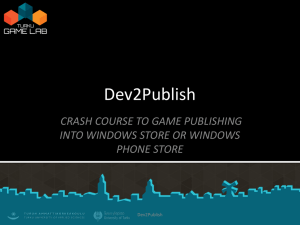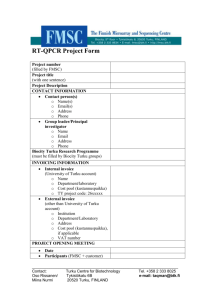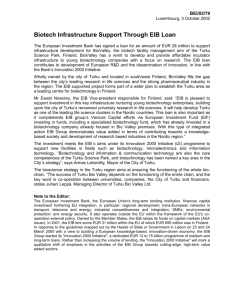University as an Engine of Innovation and Entrepreneurship
advertisement
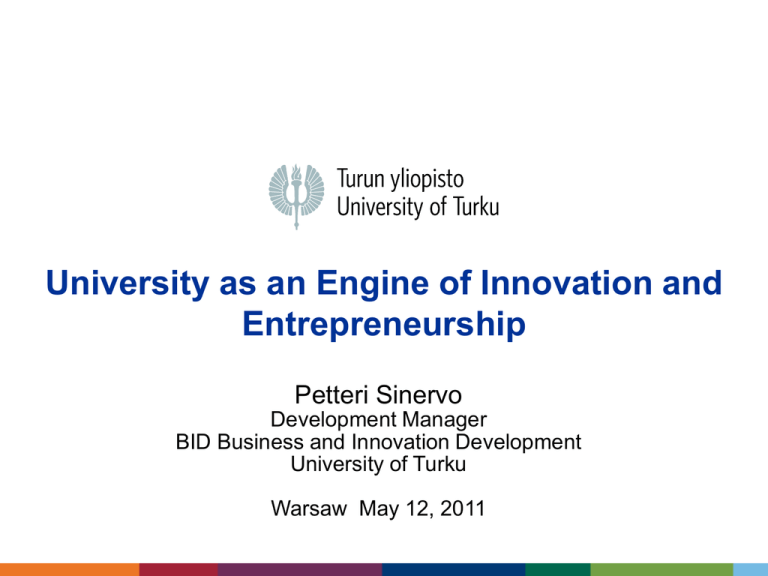
University as an Engine of Innovation and Entrepreneurship Petteri Sinervo Development Manager BID Business and Innovation Development University of Turku Warsaw May 12, 2011 OTSIKKO Tekstiä Facts about University of Turku • Academic heritage since 1640, the current University of Turku was founded in1922 • Multi-disciplinary – Six faculties and Turku School of Economics, 13 special units, six national centres of excellence – 21 000 students: 16 000 Degree Students, 2 500 Postgraduate Students & 2 500 Visiting Students – 3 500 employees • Over 3 000 scientific publications annually, 77% of which in international publications • Ranked 221. university in the whole world (THES – QS World University Rankings) Developments in University Operations • Traditional tasks: research and education • Third task: societal interaction and influence – More activities outwards – Being change agent – Demand for regional, national and European development – Demand to utilise the research outcome better • Phases: 1. Ivory tower 2. Technology transfer 3. Knowledge exchange 3rd Generation Universities SCIENTIFIC EXCELLENCE 2ND GENERATION UNIVERSITY AS SCIENCE 1ST GENERATION UNIVERSITY AS INTELLECTUAL CENTER 3RD GENERATION UNIVERSITY AS GENERATOR OF SCIENCE AND INNOVATION • entrepreneurship and innovation (applying science, relevance) as strategic objectives • university/society interaction • university as global network of excellence • open innovation • pro-active regional linkages • engine of early-stage innovation ENTREPRENEURIAL AND INNOVATIVE EXCELLENCE Source: Antti Paasio 2010 ENTREPRENEURIAL AND INNOVATION EXCELLENCE Supporting innovations in the University of Turku • In Turku and elsewhere – Services for research funding, project management and technology transfer • Essential but nor enough – Innovation development: patent orientation – Linear thinking • BID Business and Innovation Development Centre (2010) – To improve the interaction of research in science and business research in order to create a strong open innovation platform – Outreaching to partners outside the university but keeping the academic character in the operations BID is based on the modern OPEN INNOVATION concept where innovations are often created in networks and where business and market forces are as important drivers as technology BID is founded on the utilisation of MEDICI EFFECT where innovation is best supported by bringing together different academic fields and also other actors in business environment BID is a Change Agent Objectives • Awareness and understanding of the relevance of entrepreneurship and innovations across the university • Higher quality and quantity of knowledge-intensive innovations • More effective usage of science in business • Improved/wider professional relevance of academic degrees • To build a strong link between world class innovative research and creation of high-growth knowledge-based businesses (Lisbon agenda) • To increase the quality and quantity of new business deal flow in the region and to accelerate growth • To improve the link between innovative research and venture financing organisations BID operational model - Linking ICT excellence Business competence and innovation development Research and knowledge of academic disciplines Operating in: - Research: academic and applied - Education: Basic, post-graduate, additional - Business development - Awareness Better utilization of academic knowledge and research outcomes BID activities • Awareness program and road show • Targeted Entrepreneurship & Innovation education – Basic degrees, Master Programs, Post-Graduates • Applied research: cross-disciplinary from the very beginning • PhD+MBA: Turku Campus, international partners, EIT ICT Labs • Business Development Laboratory • Growth Laboratory (under construction together with Turku Science Park) BID activities cont. • European Entrepreneurship Educators Programme (3EP) • From Science to Business –project – Activation, guidance and funding for science-based business ideas • Innovation Boot Camps • Initiating and encouraging student movements: BOOST initiative (www.boostturku.com) Challenges • • • • • Keeping it open ! Attitude and mindset Creating entrepreneurial teams Moving away from patent emphasis Gap of knowledge by academics & industrialists about each other’s organisational cultures • Academic ranking and reward systems do not support university-industry cooperation or entrepreneurial development within universities • Disruptive technologies and difficulties to identify the high-flyers !!! Thank you for your attention !
